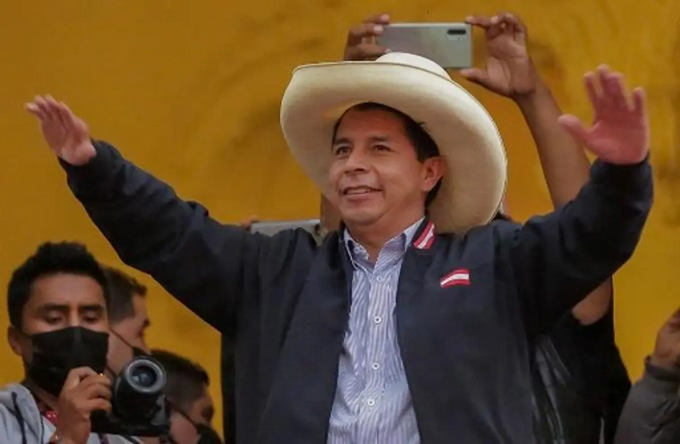Peruvian President Pedro Castillo presented Parliament on Monday with a project for a Constituent Assembly to draw up a new constitution, but Congress commented that the plan was unfeasible and unconstitutional.
The plan proposes that in an additional ballot, during the regional and municipal elections in October, the question be asked: “Do you approve the call for a Constituent Assembly in charge of preparing a new Political Constitution?” with the alternatives: yes or no.
Castillo announced his proposal on Friday and sent his initiative to Parliament on Monday. It comes after nearly a month of protests over rising food, fuel and fertilizer prices due to global inflation, the war in Ukraine and the inability of the government and Parliament to help the population.
Prime Minister Aníbal Torres said at a press conference that the plan for a Constituent Assembly does not imply that Congress or the Executive be closed. He specified that the two powers will continue to exercise their functions “for the period for which they have been elected”, until July 28, 2026.
The president of the Congress -dominated by the opposition-, María Alva, told journalists earlier that the Executive’s plan was “unfeasible”, “unconstitutional” and used by the government as a “distraction”. In a sign of the discord between both powers of the State, Alva indicated that since the first day of the Castillo government, July 28, 2021, the Executive has sought to “close Congress.” Alva – who heads a Parliament that in nine months has twice sought to remove Castillo – added she “from here we are trying to make sure that this does not turn into Cuba or Venezuela.”
The path so that the consultation can be carried out in October is very complicated because the Executive’s project would first go to the Constitution commission dominated by the opposition and, if it manages to be approved, it would only be transferred to the plenary session of the Legislative, where it would have to obtain 66 votes, an amount that the president’s allies cannot reach.
Showing the historical differences between Lima and the rest of the country, the prime minister indicated that “in the provinces there is a demand that a Constituent Assembly be convened”, while in Lima, “the population is different, in Lima the population is against the Constituent Assembly”. The prime minister specified that the government has presented various initiatives to Parliament to make partial changes to the current Constitution and put an end to political uncertainty or to improve the public interest, which have not been accepted.
Torres explained that they want the Peruvian economy to resemble a social market economy similar to that of Germany, France, Italy or Spain “where there are social differences, but not as deep as here, an extreme difference between a few who have everything and others who have practically no fundamental rights. We are not taking anything away from those who have everything, we are simply telling them to pay their taxes.”
He commented, among other aspects, that there is a need to combat monopolies or the position of dominance in the market, to put an end to the subsidiary and economic activity of the State that does not allow having state companies to manage strategic resources —such as Chile with its state company for extract copper—and put an end to contracts protected by the current Constitution that cannot be changed over time that, according to what he said, absolutely favor a group of companies which have advantages over others and there are no possibilities for the development of the free market .
The presidential initiative indicates that the eventual Constituent Assembly would be made up of 130 assembly members —the same number as the current unicameral Parliament— where 40% would be representatives of political parties, 30% independent candidates, 26% representatives of indigenous peoples and 4% representatives of Afro-Peruvian peoples. . Under the plan, assembly members would have up to a year to draft a new constitution and three months later a referendum would be called for Peruvians to approve or reject it.
Aníbal Torres commented that if Congress rejects the Executive’s project “there will be nothing against that rejection.”
In the most recent demonstrations due to inflation, the request for a new Constitution —to replace the current one from 1993— has been frequent, especially in other regions outside of Lima, but it is not clear if it is a majority desire. A February national survey by the Institute of Peruvian Studies and published in the newspaper La República indicates that 52% want partial constitutional changes and 28% want to change to a Magna Carta.
In March, Castillo denied that he wanted to promote a Constituent Assembly, but in July 2021, when he took office, he promised to promote a plan to rewrite the Magna Carta. That date he said that the Constitution benefits “large corporations.” He added that the State must have freedom to promote, monitor and regulate according to the interest of the majority.
Peru has been experiencing political instability since 2016, with five presidents and three unicameral Congresses. Parliament and the president are very unpopular, according to all the polls. In April, the firm Ipsos indicated that 79% disapprove of Congress and 76% of the president.
Castillo’s government is scheduled to end in 2026.
